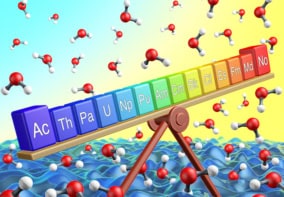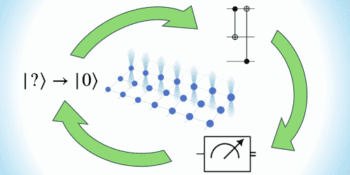Two physicists have won the Nobel Prize for Chemistry by developing new techniques that predict the behaviour of molecules. Walter Kohn from the University of California, Santa Barbara, won his share of the prize for the development of density-functional theory, which describes the behaviour of electrons in a molecule. John A. Pople from Northwestern University, Illinois, received his award for developing computer programs that can explain the quantum chemistry properties of molecules.
Understanding how molecules behave on the quantum level can help develop new drugs or improve the synthesis of chemical products. However, the underlying mathematics behind quantum chemistry are exceedingly complex.
Density-functional theory simplifies the mathematics surrounding the behaviour of electrons in a molecule. Instead of having to calculate the position and motion of every electron in the molecule, Kohn proved that the total energy of a molecule can be found by calculating the average number of electrons in a given orbit space – the electron density. This allows chemists to model on the properties of large molecules such as enzymes.
John Pople developed the GAUSSIAN computer program that exploits quantum mechanics to describe the physical properties of chemical bonds. Chemists input the properties of molecules or a chemical reaction, and the program calculates the possible chemical reactions or the behaviour of molecules as a result. By basing the program on a modular design, the program can be updated easily with the latest theoretical research.



